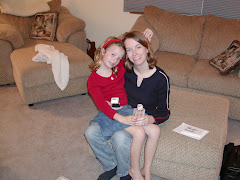
Good Evening,
I hope you are all well. Well, we are in the process of finishing up our mission here. We are all packing our personal goods and preparing them to be shipped back to the states. We are mostly going to mail our personal goods back ourselves through the mail system as if we have the Army ship our goods back we will not receive them for up to three months. I don’t think my Tupperware full of tuna salad would taste too well after being in a shipping container for that long.
I hope you are all well. Well, we are in the process of finishing up our mission here. We are all packing our personal goods and preparing them to be shipped back to the states. We are mostly going to mail our personal goods back ourselves through the mail system as if we have the Army ship our goods back we will not receive them for up to three months. I don’t think my Tupperware full of tuna salad would taste too well after being in a shipping container for that long.
Tonight, I wanted to talk a little bit about the transition back home. A couple of family members wrote and asked about what they should expect when their loved one returns home.
The reuniting of the family after a deployment is always exciting but it is also stressful. The truth is that major adjustments have to be made once a soldier returns to his/her family. While your husband or wife was deployed you have had to adjust your day to day activities to compensate for those things that were to be left undone by your spouse’s absence. Frankly, you have developed your own routine and have been doing very well by yourself because you had to. When your spouse returns you may feel that he or she is now stepping into your space. You may feel crowded and feel that your routine is being disrupted. This is normal. Believe me your returning spouse will feel a little left out as he/she has not been into your routine for over a year and so that will be a huge adjustment as well.
Went I went home for leave, I felt a little in the way, as Karen and Karis had their own routine and they had activities that were scheduled. I was like a third wheel and this may sound strange but I felt more comfortable being back here with my friends.
Now, this feeling is the real truth when soldiers deploy. We spend a great amount of time with each other and we develop an incredibly close bond. Once we are pulled from this environment and put back into the normal world of civilian life, the adjustment becomes very difficult. There is a de-programming process that will take place and this process can be stressful.
Some advice I would give for you to help the process are to make sure that you allow your returning spouse a little time to reacclimatize. Don’t plan any big trips or rush around to see relatives right away. This is a mistake as a returning soldier simply wants to take a break and mentally prepare for his/her return to civilian life.
Unfortunately, mental health issues are very common among returning soldiers. The sad fact is that 1/3 of all suicides among soldiers are done within the first three months of a person return from a deployment. Another unfortunate truth is that a soldier returning from a deployment is 3 times more likely to die in a motor vehicle accident within the first three months of returning from deployment.
Why does this happen. The suicide rate is disturbing and the etiology of this phenomenon is certainly mulit-factoral, yet a few reasons can be identified.
Firstly, every soldiers experience in Iraq and Afghanistan is unique and so trying to identify one reason for increased suicide rate upon returning home is difficult. But there are some commonalities that we can look at. When in a war zone, especially for those who are on combat missions, a bond between friends becomes unbreakable. So, when a buddy loses his/her life the resulting emotional effect is devastating to those who served with him/her. While deployed, soldiers find ways to cope with these tragedies as they are all going through the experience together. A soldier feels like he has a purpose, he feels needed, he feels like he’s important to his friends.Once a soldier returns home, suddenly he doesn’t feel as integrated into his civilian life as he was in his military life. He feels alone and empty and even though he has family around him who loves him, he still feels alone. It may not make sense to you now but please try to understand the emotional pressures of coming from this environment back to the quiet peaceful life of home.
I would encourage any spouse to be aware of the emotional needs of your loved ones. Allow him/her some time to decompress and be ready to talk when he/she is ready to talk. It will take some time for the both of you to readjust to this reintegration. But if you give it time and have some patience your life will find its flow again.
The driving aspect of returning to home is interesting. Many of our soldiers spend a great deal of time driving and going place to place in a convoy. These convoys are extremely dangerous. It is rare that a convoy completes its mission without at least taking fire and all too often they are hit by mortars, rockets, and roadside bombs. Soldiers have to drive very aggressively here. If a vehicle is slowing down or even stops in front of their vehicle they are instructed to run that vehicle off the road. The enemy uses car bombs with great effectiveness. Soldiers become incredibly paranoid and jumpy at anything that looks even a little unusual. A paper bag lying on the side of the road can be concealing an explosive device. So when a soldier, returns home he has a great adjustment in re-learning how to drive defensively and safely again. A soldier’s returning to the road tends to swerve from one lane to another without provocation if he perceives that something just doesn’t seem right. Of course, you may see nothing of concern but to a soldier, a car parked improperly is a matter of great concern. So, you may do well to encourage your spouse to let you drive for a while when you return home until he gets used to the rules of the road again.
Another problem that you may face is something that Claire talked about in her letter to us. Often times when a spouse returns from theater, he has a difficult time with intimacy. I don’t simply mean sexually, but intimacy in the sense of sharing important feelings. I think that soldiers learn to suppress their feelings of fear and doubt. I think they think that these feelings betray them on some level and so they don’t allow them in. You will most certainly have times when you will want to sit and have an intimate discussion with him. Be patient. Be quick to listen and slow to interrupt. Sometimes your attentive ear will allow him to open up without fear of judgment.
Finally, I want to address the topic of depression. I am not sure that a person can come back from the mess of any war and not have some mental health deficits. Depression is a common problem among the entire population of the U.S. But the problem is even more acute among those who have returned from deployment.
Depression is not always easy to diagnose, however, there are few signs that you can look for that might aid you in understanding your spouse’s emotional status. Depression can be characterized by: Lack of sleep or sleeping too much, increase or decrease appetite, anhedonia or lack of interest in doing anything, spending an unusual amount of time alone, and/or lack of personal hygiene. These are only a few of the symptoms. The truth is that you know your spouse better than anyone and you would be the one person who would notice these changes regardless of how slight they maybe. When you spouse returns, I would encourage you to encourage him/her to enroll in one of the local Veteran’s Administration Hospitals and obtain an initial screening. Even if your spouse feels that nothing is wrong, it is still important to receive an evaluation. Often times mental health issues don’t present until later. An initial screening would provide a base line that can be used for comparison for later evaluations if needed.
To conclude, I would like to thank you for the love you have shown your loved one while he/she was deployed. It is true that when a soldier deploys, his/her family deploys with them. Deployment affects the entire family. It is my prayer that when your loved one returns home that your transition will be smooth. If there are any problems please be quick to seek help. Also, contact your Family Readiness Group and start a relationship with other family members who have experienced the same journey that you have just finished.
You are all loved so much by those of us who have had to go forward and we all understand that you are the true foundation in which we stand. Thank you for your love and for your support.
God Bless You All,
Jeff









No comments:
Post a Comment